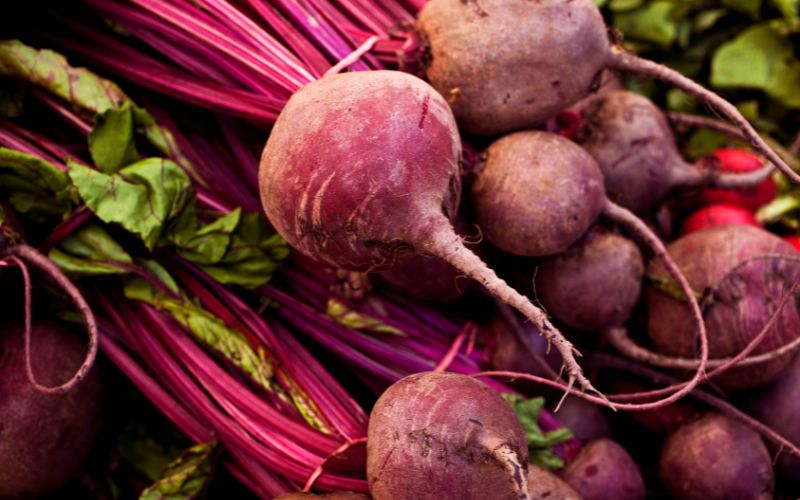Beets are a popular food item these days. People love them for their nutritional value and their unique taste.
But what about dogs? Are beets bad for them? Let’s find out.
Beets are not poisonous to dogs, but that doesn’t mean they’re necessarily good for them either. The high sugar content in beets can lead to weight gain and other health problems in dogs, so it’s best to feed them in moderation. If your dog does eat beets, make sure to monitor their intake and keep an eye out for any negative side effects.
Are beets a good food for your dog?
Beets are an excellent source of vitamins and minerals, including vitamin C, magnesium, potassium, and iron.
They’re also packed with antioxidants and phytonutrients that can help boost your pup’s immune system and keep them healthy overall.
Not to mention, the high fibre content in beets can aid in digestion—something that’s always important for dogs (and their owners!).
Are there any risks associated with feeding beets to dogs?
Beets do contain sugar, so if your dog is diabetic, you’ll want to talk to your veterinarian before adding them to their diet.
Other than that, beets are generally considered safe for dogs—but as with anything new, it’s always best to introduce them slowly to avoid any digestive upset.
Start by adding a small amount to their regular food and see how they do before increasing the amount.

The nutritional benefits of beets for dogs
Beets are an excellent source of fibre, vitamins, and minerals.
They’re also low in calories and fat.
Here are some of the most important nutrients that beets can provide for your dog:
Fibre: This essential nutrient helps with digestion and prevents constipation.
• Vitamin C: A powerful antioxidant that helps boost the immune system.
• Vitamin B6: Helps the body break down proteins and form red blood cells.
• Potassium: A mineral that helps keep the heart functioning properly.
• Folate: A water-soluble vitamin that’s essential for proper cell growth.
• Manganese: A mineral that’s necessary for healthy bones, skin, and fur.
• Iron: Helps keep the blood oxygenated and prevents anemia.
• Magnesium: Helps with nerve and muscle function.
• Copper: Helps produce energy in the body and aids in iron absorption.
No products found.
Research has shown that eating beets can help decrease inflammation, improve brain function, lower blood pressure, and even fight cancer.
That said, there are a few things to keep in mind when feeding your dog beets.
First of all, beets should only make up a small part of your dog’s diet.
They should not replace your dog’s regular food or treats.
Secondly, some dogs may be allergic to beets. If you notice your dog having any adverse reaction after eating beets—such as vomiting, diarrhoea, or excessive scratching—take them to the vet right away.
Finally, it’s important to prepare beets properly before feeding them to your dog.
Do not feed your dog raw beets; cook them first to soften them up and make them easier to digest.
You can bake or boil them—just make sure to remove any skins or leaves first.
Before you go
There are many foods that are suitable for dogs to eat and you can see which are safe and which are not in our comprehensive dog food and treats section.
Last update on 2024-07-27 / Affiliate links / Images from Amazon Product Advertising API





